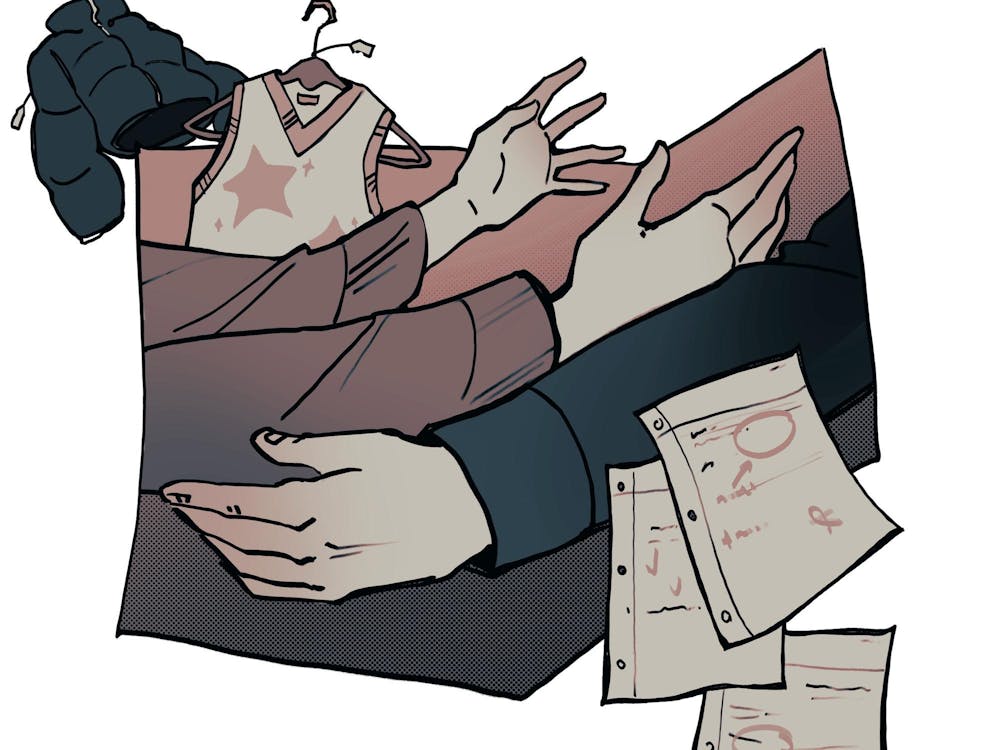When I was a kid, I used to marvel at families who said “I love you” as easily as they breathed. Wrapping it in a goodbye, casually saying it in passing—it shocked me that anyone could say such an emotionally charged sentence without a second thought.
Though my family is far from all the stereotypes surrounding Asian immigrant families, one does ring true: never saying “I love you” to each other.
I would see videos on YouTube of people—usually also from Asian immigrant families—calling their fathers to tell them “I love you” for the first time. They would all start the same: The producers would ask the person in frame if they and their father had ever said that they love each other. When the person said no, the producers always asked why, as if the concept was so foreign they couldn’t fathom the reasoning behind it.
The music would always swell and fall dramatically after the phone call, the camera zooming in on the person sitting in the chair, whether they were awkwardly smiling or their expression was strung tight to restrain their tears. The “I love you” was always framed as a turning point, as if there had been a shift in the person’s relationship with their father because of it. The love between them was supposed to be more real, now that it had been spoken into the world.
As a kid, I began to wonder what that meant for my relationship with my father, whom I had never told I loved, who had never told me. Casual “I love you”s and these videos that posited a verbal confirmation of love put into my head a specific notion of what fatherly love should be. Did never saying “I love you” mean there was a deficiency in our relationship?
On family weekend, my parents drove up from New York, and I showed them my decorated and last-minute-cleaned dorm. My dad looked around, his eyes landing on the duffle bag where I had hastily stuffed half my clothes while waiting for the top drawer of my dresser to get fixed. I braced myself for a light scolding about keeping my dorm neat, but he just frowned and said, “You know, you have so little clothes. We need to buy you more.”
I frowned, about to object that I had plenty of clothes—leaning more towards having too many than too little, honestly—but I paused as I saw the look on his face. He didn’t really think I didn’t have enough clothes; he just missed me while I was away at college and wanted to go out of his way to buy me more things.
My parents took me to Providence Place, and my dad picked clothes (at random I suspect) and asked me if I liked them, offering to buy them without even a glance at the price tag. My dad, who was completely removed from the fashion world and even more removed from trendy, teenage fashion, was enthusiastically taking me shopping, practically begging me to get something. He was doing something foreign and probably uninteresting to him solely for my sake, solely for my happiness, and if that is not love, I do not know what is.
The lack of verbal “I love you”s within Asian immigrant families is always seen as a deficiency, but does something have to be said to be known? I know my father loves me not because he has told me, but because I have never had to wait even a minute after my train ride for him to greet me with a hug, because he has forgiven and guided me through every silly mistake I have made navigating living by myself, because he offers to help me review the notes for classes he knows I’m struggling with, because I can see love in the crinkled corners of his eyes as he smiles at me.
I don’t need to call my father and hear him say “I love you” through the crackle of phone static to know that he does. He cares for me with a generosity and attentiveness he reserves for few people; I know what that is.
And that’s enough for me; I don’t need anything more.





